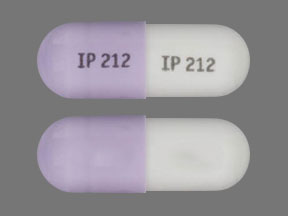
Dilantin Coupons & Savings Card – Discount Prices from $18.58
Brand for: Phenytoin
My prescription
Edit
100MG, Phenytoin Sodium Extended (120 Capsules)
Select pharmacy

CVS
$25.31
COUPON PRICE
Walmart
$18.58
COUPON PRICE
Walgreens
$26.28
COUPON PRICE
Albertsons
$30.59
COUPON PRICEDilantin savings card
Show this card to your pharmacist
Walmart
$18.58
BIN
ID
PCN
GRP
019876
LH872B4F4C
CHIPPO
LHX
Powered by
Related anti-epileptics prescriptions
More prescriptions for epilepsy
Related anti-epileptics prescriptions
More prescriptions for epilepsy
Price history for Dilantin (brand) & Phenytoin Sodium Extended (generic)
120 Capsules, 100MG
Average retail price for Dilantin
Average retail price for Phenytoin Sodium Extended
Average SaveHealth price for Phenytoin Sodium Extended
Our price history data is based on aggregated prescription data collected from participating pharmacies in America. Our prescription data updates daily to reflect the latest price changes. If you notice a missing data point, it means there wasn't sufficient data available to generate a monetary value for that date.
Over the last 12 months, the average discount price of Dilantin is $26.28 using the SaveHealth savings card. That's an average savings of 86.94% on Dilantin with our discount card.
*Retail prices are based on pharmacy claims data, and may not be accurate when we don't have enough claims.
Dilantin (Phenytoin Sodium Extended) dosage forms
Dosage Quantity Price from Per unit 100MG 120 Capsules $18.58 $0.15 100MG 1 Capsule $2.63 $2.63 100MG 10 Capsules $3.84 $0.38 100MG 30 Capsules $6.52 $0.22 100MG 33 Capsules $6.92 $0.21 100MG 45 Capsules $8.53 $0.19 100MG 60 Capsules $10.54 $0.18 100MG 90 Capsules $14.56 $0.16 100MG 100 Capsules $15.90 $0.16 100MG 150 Capsules $22.60 $0.15
| Dosage | Quantity | Price from | Per unit |
|---|---|---|---|
| 100MG | 120 Capsules | $18.58 | $0.15 |
| 100MG | 1 Capsule | $2.63 | $2.63 |
| 100MG | 10 Capsules | $3.84 | $0.38 |
| 100MG | 30 Capsules | $6.52 | $0.22 |
| 100MG | 33 Capsules | $6.92 | $0.21 |
| 100MG | 45 Capsules | $8.53 | $0.19 |
| 100MG | 60 Capsules | $10.54 | $0.18 |
| 100MG | 90 Capsules | $14.56 | $0.16 |
| 100MG | 100 Capsules | $15.90 | $0.16 |
| 100MG | 150 Capsules | $22.60 | $0.15 |
| 100MG | 270 Capsules | $42.07 | $0.16 |
| 100MG | 360 Capsules | $47.32 | $0.13 |
| 100MG | 500 Capsules | $55.50 | $0.11 |
| 100MG | 540 Capsules | $57.84 | $0.11 |
| 100MG | 1000 Capsules | $84.70 | $0.09 |
What is dilantin used for?
Dilantin is used primarily to control seizures in individuals with epilepsy. It helps to stabilize electrical activity in the brain and is often prescribed to prevent tonic-clonic seizures and partial seizures.
Why would someone take Dilantin?
Dilantin is typically prescribed to manage and prevent seizures in individuals with epilepsy. It helps stabilize electrical activity in the brain, reducing the frequency and severity of seizures.
What is another name for Dilantin?
Another name for Dilantin is Phenytoin.
What else is DILANTIN used for?
Dilantin, also known as phenytoin, is primarily used to control seizures in the treatment of epilepsy. It is also sometimes used to prevent seizures during or after neurosurgery. Additionally, Dilantin may be prescribed for certain types of arrhythmias, particularly those that are resistant to other treatments. However, its use for arrhythmias is less common and typically considered when other options are not suitable.
Is Dilantin a painkiller?
Dilantin is not a painkiller. It is an anticonvulsant medication used primarily to control seizures in epilepsy.
